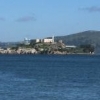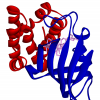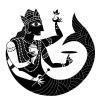Dealing with chronic exercise-induced sore...
 Jackhill41
14 Jun 2015
Jackhill41
14 Jun 2015
Hello all,
I am 37 years old and enjoy doing a variety of physical activities: BJJ, basketball, volleyball, weightlifting, yoga, etc. One thing I have noticed as I've aged is that my muscles are now constantly sore, especially those of the lower body and back.
I have tried to address this problem by eliminating squats and deadlifts, which has helped. Foam rolling and yoga are also very helpful. But I always have some degree of muscle soreness. I am wondering what supplements, if any, I can take to help with muscle soreness.
I don't use any supplements right now- I just rely on a healthy diet to meet my needs. I eat plenty of fish and drink undenatured whey for glutathione (I think that helps?). Reading more and more of the posts on this forum has planted the seed of doubt in my mind about the wisdom of supplementing beyond basic stuff like Vitamin K-2 and magnesium. Specifically, I am concerned that supplements such as curcumin, high-dose Vitamin C, or N-acetyl glucosamine might actually be counter-productive for muscle soreness by decreasing the body's natural inflammation response to exercise. (I suppose the concern is similar to that of taking too many anti-oxidants, the danger of which has been speculated on these forums many times.) I just don't know if I am being overly worried about this concern.
I exercise daily and have thought about taking supplements like the above as far away from exercise as possible (i.e., 12 hours after exercising) in the hope of benefiting from my body's natural response as well as the supplements.
Perhaps I am just raging at the loss of youth. But if anyone has ideas on supplements that might help with muscle soreness, I'd love to hear them. Otherwise I'll just have to start supplementing and see what trial and error reveal. Thanks!
 Davin8r
14 Jun 2015
Davin8r
14 Jun 2015
I think your best bet is HMB (either the older calcium-bound form or the new free acid form). This supplement specifically protects against overtraining and actually works best when someone is borderline overtraining. It has both anabolic and especially anti-catabolic effects in skeletal muscle tissue, and when I was taking it I barely ever got sore despite lifting weights 5+ days per week. Older studies on its effectiveness were somewhat mixed, but newer studies where the participants have higher volumes of training have shown some damned impressive results.
*However*, if you're concerned about longevity/anti-aging, it might theoretically be counter-productive because it appears to achieve the aforementioned effects via stimulation of mTOR pathway(s). This is why I recently stopped taking it. :(
 Kalliste
14 Jun 2015
Kalliste
14 Jun 2015
Well I am 30 and in peak physical condition, possibly lifetime-peak condition ![]()
Anyway I have noticed a pretty profound inhibition of muscle soreness from C60 supplementation. About 5ml/day of oil does the trick. I tried stopping it for a while and the soreness in my legs came back.
I work my legs pretty hard, two 10km rounds on my bike every day and those are not done at a leisurely rate since I'm in a hurry to and home from work. I throw in a lot of "pause physicals" to avoid the seemingly disastrous issue of chronic immobility when I sit down at work for more than 30 minutes. I lift weights two or three times a week, mostly compound excersize such as squat, frogjumps, benchpress.
I tried stopping C60 and the soreness, especially in my legs, came jumping back at me after about a week. I had taken a last dose of 20ml oil so I was expecting it to last me a long time (I had the positive placebo so to speak).
My current regime supplements and no supplements:
5ml c60 every second day.
5g of creatine every day.
15g of spices (curry, ginger, curcumin, oregano, thyme)
50g nuts every day.
200g of legumes day.
250g of broccoli.
Hot baths, showers daily.
Cold showers daily.
Stretching every three or four days.
4-5 day water only fast every 50 days.
I was taking MitoQ 10mg/day but ran out and am to greedy to buy more ATM. It really energized me, even with C60 already in me.
Bought some LLLT equipment but I don't wanna do it for my muscles with C60 in the system due to uncertainty.
Edited by Cosmicalstorm, 14 June 2015 - 06:34 AM.
 Junk Master
15 Jun 2015
Junk Master
15 Jun 2015
Creatine.
Ibutamoren.
More sleep, including 45 min nap post exercise meal.
Alternating epsom salt and ice baths. Unless you have a Nike Cryosauna...
http://www.runnerswo...g?itok=bnbzfzUO
 Jackhill41
15 Jun 2015
Jackhill41
15 Jun 2015
Thanks all for the replies- I appreciate the food for thought.
Cosmicalstorm, I think you may be on to something about antioxidants targeting mitochondria like mitoQ and C60. I have some PQQ lying around and will probably start experiementing with that in the next couple of days.
@ Davis, I have never heard of HMB before, but googling around shows a lot of lifters are big fans of it.
@Junkmaster, I think my budget will keep me on ice baths for now ![]() I have experimented with them in the past and am unsure whether they provide benefits. I know pro athletes swear by them, but I've seen a couple of studies that report no statistically significant benefits to them. Epsom salts are a definite thought...
I have experimented with them in the past and am unsure whether they provide benefits. I know pro athletes swear by them, but I've seen a couple of studies that report no statistically significant benefits to them. Epsom salts are a definite thought...
 Junk Master
16 Jun 2015
Junk Master
16 Jun 2015
Just saw another study showing that 2 grams of ginger was helpful for muscle soreness as well.
One note with the epsom salt baths is not to take them directly after exercise. I wouldn't take ice baths directly after exercise either, as I believe they will hinder some of the gains from your workout.
Another thing to try is emphasis on the eccentric component of any exercise (running down hill will do this too), at leat once every two weeks. For some reason, this tends to reduce muscle soreness in subsequent workouts.
 OneScrewLoose
01 Jul 2015
OneScrewLoose
01 Jul 2015
One note with the epsom salt baths is not to take them directly after exercise.
Sorry, but [citation needed].
 nowayout
01 Jul 2015
nowayout
01 Jul 2015
Creatine is as far as I am aware the only non-hormonal supplement that has been shown of significant benefit in weight training, and no harm has been found to date despite many studies looking for possible harmful effects.
Whey protein may also be of benefit in athetes who don't otherwise take in enough protein.
 Krell
01 Jul 2015
Krell
01 Jul 2015
http://www.scienceda...60623101220.htm
...
Historically, a number of approaches to prevent exercise-induced muscle pain and damage have been examined, but few have been effective. Declan Connolly, associate professor of education and director of the human performance laboratory at the University of Vermont and colleagues at New York’s Nicholas Institute of Sports Medicine and Athletic Trauma and Cornell University, evaluated the efficacy of a fresh, highly-concentrated, specially- processed tart cherry juice blend in preventing the symptoms of muscle damage in a randomized, placebo-controlled study in 14 male college students.
"The anti-inflammatory properties of cherry juice have been examined before, but the focus of this research was on a new area – muscle damage repair," said Connolly. "Only two species of mammals suffer this type of muscle damage – horses and humans."
The study participants were asked to either drink a bottle of the cherry juice blend twice a day for three days before exercise and for four days afterwards, or to drink a placebo juice containing no cherries. The 12-ounce bottle of juice contained the liquid equivalent of 50 to 60 tart cherries blended with commercially available apple juice.
The participants performed a type of muscle-damaging exercise – flexing and tensing one arm 20 times – that creates contractions in which the muscle is lengthened. Muscle tenderness, motion, and strength were assessed on each of the days before and after exercise, using standard pieces of equipment designed for the purpose. Study participants rated their muscle soreness on a scale of one to ten. The whole process was repeated all over again two weeks later, with those who had taken the placebo juice taking the cherry juice blend instead, and vice versa. The other arm was also used.
There was a significant difference in the degree of muscle strength loss between those drinking the cherry juice blend and those taking the placebo juice. This fell by 22 percentage points in those drinking the placebo juice, but only by four percentage points in those drinking cherry juice. Muscle strength had slightly improved after 96 hours in those drinking cherry juice. The degree of soreness differed little between the two groups, but the average pain score was significantly less in those drinking cherry juice. Average pain scores came in at 3.2 for those drinking the placebo juice and 2.4 for those drinking cherry juice. Pain also peaked at 24 hours for those drinking cherry juice, but continued to increase for those on the placebo juice for the subsequent 48 hours.
 sthira
04 Jul 2015
sthira
04 Jul 2015
Have you tried adding a small amount of baking soda to your water bottle? It's also very subtle, but these little things add up, and suddenly you're feeling a little less sore.
Sodium bicarbonate intake improves high-intensity intermittent exercise performance in trained young men.
Krustrup P, Ermidis G, Mohr M.
J Int Soc Sports Nutr. 2015 Jun 4;12:25. doi: 10.1186/s12970-015-0087-6. eCollection 2015.
PMID:26097440Free PMC Article
http://www.ncbi.nlm....les/PMC4475610/
http://www.ncbi.nlm...._Article_87.pdf
Abstract
BACKGROUND: Sodium bicarbonate intake has been shown to improve exercise tolerance, but the effects on high-intensity intermittent exercise are less clear. Thus, the aim of the present study was to determine the effect of sodium bicarbonate intake on Yo-Yo intermittent recovery test level 2 performance in trained young men.
METHOD: Thirteen men aged 23 ± 1 year (height: 180 ± 2 cm, weight: 78 ± 3 kg; VO2max: 61.3 ± 3.3 mlO2 · kg(-1) · min(-1); means ± SEM) performed the Yo-Yo intermittent recovery test level 2 (Yo-Yo IR2) on two separate occasions in randomized order with (SBC) and without (CON) prior intake of sodium bicarbonate (0.4 g · kg(-1) body weight). Heart rate and rating of perceived exertion (RPE) were measured during the test and venous blood samples were taken frequently.
RESULTS: Yo-Yo IR2 performance was 14 % higher (P = 0.04) in SBC than in CON (735 ± 61 vs 646 ± 46 m, respectively). Blood pH and bicarbonate were similar between trials at baseline, but higher (P = 0.003) immediately prior to the Yo-Yo IR2 test in SBC than in CON (7.44 ± 0.01 vs 7.32 ± 0.01 and 33.7 ± 3.2 vs 27.3 ± 0.6 mmol · l(-1), respectively). Blood lactate was 0.9 ± 0.1 and 0.8 ± 0.1 mmol · l(-1) at baseline and increased to 11.3 ± 1.4 and 9.4 ± 0.8 mmol · l(-1) at exhaustion in SBC and CON, respectively, being higher (P = 0.03) in SBC. Additionally, peak blood lactate was higher (P = 0.02) in SBC than in CON (11.7 ± 1.2 vs 10.2 ± 0.7 mmol · l(-1)). Blood glucose, plasma K(+) and Na(+) were not different between trials. Peak heart rate reached at exhaustion was 197 ± 3 and 195 ± 3 bpm in SBC and CON, respectively, with no difference between conditions. RPE was 7 % lower (P = 0.003) in SBC than in CON after 440 m, but similar at exhaustion (19.3 ± 0.2 and 19.5 ± 0.2).
CONCLUSION: In conclusion, high-intensity intermittent exercise performance is improved by prior intake of sodium bicarbonate in trained young men, with concomitant elevations in blood alkalosis and peak blood lactate levels, as well as lowered rating of perceived exertion.
KEYWORDS: Blood pH and lactate; Buffer capacity; Fatigue; Plasma potassium; Yo-Yo IR2 performance
 Jim Morrison
05 Jul 2015
Jim Morrison
05 Jul 2015
I find that Whey protein profoundly speeds up my recovery. I usually down a shake (water base, no sugar/fat) right after exercise. This is probably mostly attributable to the high BCAA content in whey, including Leucine which will lead to a nice mTOR response. Since chronic activation of mTOR is not desirable, my philosophy is to restrict this kind of nutritional stimulus to the immediate post-excercise window. This may work even better on CR when mTOR is sensitized (speculation!).
 Junk Master
07 Jul 2015
Junk Master
07 Jul 2015
I'll second the whey protein, but it does more for recovery than for DOMS...IMO.



